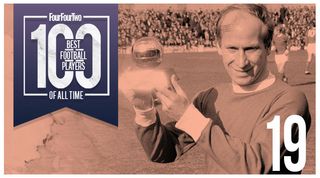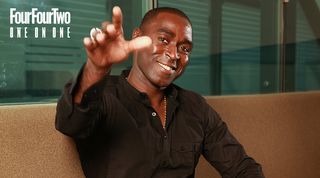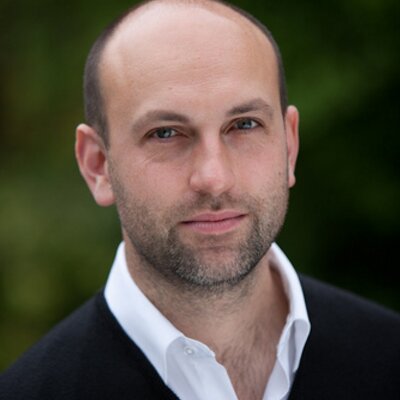The big interview: Bobby Charlton – "Without Munich, Man United would have won the European Cup in 1958"
On the 60th anniversary of the tragedy which claimed 23 lives, we head to the FourFourTwo archives. Who made Sir Bobby feel inferior? What was it like playing with George Best? And did Alf Ramsey ever let his hair down? Your questions answered in December 2008...
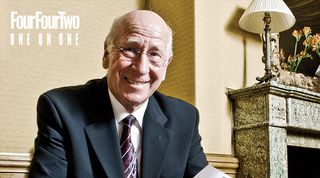
Did you ever think you would follow your father down the mines?
Paddy King, Dublin
Never. My dad made it very plain that if I could find anything better, I should do it. Fortunately I came from a football family; my uncles all played and they inspired me. I occasionally went down the mines as a lad on the weekend when my dad went to collect his wages. Everyone who went down to the mines was miserable, but when they came back up they were smiling. It wasn’t for me – besides, I found football easy.
What made you join Manchester United when several other clubs wanted to sign you? Were Newcastle one of them?
Archie Chalford, Morpeth
Manchester United were the first to be interested in me, while Newcastle were probably the last. United had a reputation for coaching young players, along with Wolves and Chelsea, but Newcastle weren’t known for that. I was found by a United scout called Joe Armstrong who watched me playing in a schoolboys game against East Northumberland boys, and in those days it was a great honour for someone to ask you to go on just a trial – but he asked me straight away to sign for United when I left school. That was in the January. A few months later I scored for England Schoolboys and lots of clubs came to my house, but I'd already made my mind up to join United.
Four of your uncles were footballers, but Jackie Milburn wasn’t one of them – he was your mother’s cousin. How many people make that mistake? How close were you to Wor Jackie?
Anthony Carr, via e-mail
I was very close to Jackie and that’s probably why people thought he was my uncle – but he was my second cousin. I saw more of him than my uncles, though, because they were all over the country playing in Leeds and Leicester, and he was close to home at Newcastle. I spent a lot of time with him, he used to take me to presentation evenings, and he actually put me off Newcastle, telling me: “They are dreadful, they’re not very good for coaching.”
You went to grammar school and began an engineering apprenticeship. Are we to assume, then, that you were a bit of a clever clogs and could have carved out a decent career other than football?
Dave Freeman, via e-mail
No, no, I wasn’t. I went to grammar school in the north-east before I went down to Manchester. When I went to school they told me I couldn’t play for United and had to play for the school team instead, so I had to leave. I did the engineering and that was a real education; you learn about people and trade unions – it was really interesting – but as soon as I was 17, I became a professional at United.
You’ve described Duncan Edwards as “the only player who made you feel inferior”. What made him such a phenomenon?
Sam Feinstein, Ashby de la Zouch
Well, if you look at most players they’re good at certain things; in the air, with their left or right foot, they read the game well, or have pace. But Duncan had it all – he really was better at everything than anyone else. From the first moment I saw him he could play anywhere and do anything; he was brave, great in the tackle, could pass it long or short and score goals. When I arrived at United I was told there were a lot of good players, but Duncan was the only one who could do things I knew I wasn’t capable of.
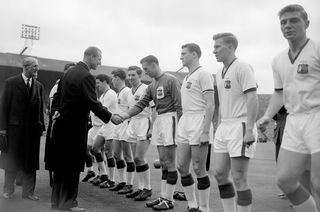
There is very little footage of the Busby Babes in action. How would you describe them as a team to fans today?
Cameron Jones, South London
Matt Busby brought together a fine group of young players, and he wanted to give them all an opportunity. He put 17-year-olds into the first team, which was unheard of in the ’50s. It was frowned upon because the game was seen as rough and only for men, but he didn’t listen. It was a wonderful time playing alongside the likes of Duncan, Tommy Taylor and Roger Byrne – we had such an attacking spirit.
Without Munich, do you think United would have curtailed Real Madrid’s European domination in the late ’50s?
Rachel Clogg, Altrincham
At first we didn’t know whether we were good enough to survive in Europe. We came up against players we’d never seen before, even on television; magic players like Alfredo Di Stefano. However, we adapted well, and I’m quite sure that had it not been for the accident, Manchester United would have won the European Cup in 1958. Real Madrid certainly wouldn’t have got their five in a row. We were learning very quickly – maybe not me, but the rest of the team – about how to be patient and win in Europe.
Get FourFourTwo Newsletter
The best features, fun and footballing quizzes, straight to your inbox every week.
Many people, including Bobby Robson and Jimmy Armfield, believe England would have won the 1958 and 1962 World Cups had it not been for Munich. Do you agree?
Denis Ledger, Shannon
It was a real possibility. We had a decent World Cup in 1958, but you add Duncan Edwards, Tommy Taylor, Roger Byrne, David Pegg and Eddie Colman and we would have had a very strong squad capable of winning the World Cup. I couldn’t say for sure we would win it both in 1958 and 1962, but I’m confident we would have won it once.
You’ve said before that football came fairly naturally to you. But which opponent gave you the most trouble?
Owen Morgan, Belfast
Dave Mackay was a tough customer, one of those who talked to you on the field. He was a bit caustic, he liked to goad you, and whisper in your ear: “Come on, let’s see you do something then...” He was such a brave and tough player, fantastic both at Spurs and Derby County.
How did you fare against brother Jack when you played against Leeds? Did you go easy on him and vice-versa?
Max Voegtli, Shanghai
The complete opposite; we didn’t talk until the final whistle. The first time I played against him he was pretty rough with me and had no hesitation in giving me a kick. But my brother wasn’t a dirty player and I was very proud of him, especially when he joined me in the England team.
How would you look back on your relationship with your brother Jack? Has it had its ups and downs? How do you get on now?
Tommy Hart, London
I actually saw him last week, and he is OK. We are like lots of brothers: you go in different directions and maybe you don’t see that much of each other. We have the odd little family row, but we get on very well now.
Just how good was George Best? What was he like to play with? Could he be frustrating at times?
Gary Fields, via e-mail
At the time when he first got in the team, no one had seen his like before: someone who was so small and tough, who would go into tackles, but also had the ability to turn people inside out and beat anyone he liked. George was as good as anyone you will see; he used to embarrass players time and time again.
Yes, he could also be frustrating. He held on to the ball for too long: you would get yourself in to a great position and hope he would pass the ball, but most of the time he didn’t. However, he usually scored or made the keeper make a save. It was paradise watching George play football – a bit like Cristiano Ronaldo now, although Ronaldo is probably stronger and faster.
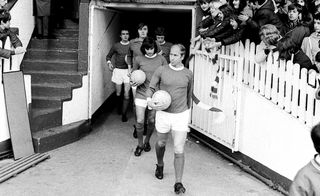
Looking back, do you think you or anyone else could have done more to help save George Best?
Alexander Fowler, Whalley Range
Probably, yes, but he was such an individual and because he had an exceptional talent, the things he did were excused and overlooked. People didn’t mind putting up with the odd problem as long as on the pitch he scored goals and entertained the crowds.
Estudiantes away, 1968. Is it true that a fan threw a bag of old meat at you as you walked onto the pitch?
Andrew White, via e-mail
No, that was Nobby Stiles. I’ve heard Nobby tell that story, I don’t remember that myself, but I do know it was a very hostile atmosphere in that game.
During your playing days at Manchester United, you used to take inswinging right-footed corners from the left and inswinging left-footed corners from the right. So are you left-footed or right-footed? And does it dismay you to see woefully one-footed players plying their trade today?
Tom Williams, Colwyn Bay, North Wales
I was two-footed: neither was stronger, and I didn’t work on it – it was natural. It's a surprise more people don’t try to improve both feet, but who are we to criticise someone like Puskas, a phenomenal footballer who never, ever touched the ball with his right foot? If you had a left foot like Puskas, why would you try to do anything else?
How much did home advantage help in 1966, what with the crowds, the cooler weather, the pressure on referees and the familiar setting? Many people say you had a better squad in 1970 than ’66, so was the difference merely that you were playing away?
Phil Day, via e-mail
Yes, being at home helped us a little, but to be honest we'd had it in our minds since 1962 that we could win the 1966 World Cup. Everything seemed easier when we started using the 4-3-3 system, and that really worked. Nowadays I'm surprised more people don’t use that system, because it's so effective: you have three midfielders who could be defenders or attackers depending on whether you have the ball or not. Was the 1970 squad more talented? No, because we didn’t win it. We came close, but the heat and altitude in Mexico were against us.
Did Alf Ramsey let his hair down after winning the World Cup? Did he ever?
Nick Allen, via e-mail
Never in front of us, but in his own way he was satisfied inside. Without him we wouldn’t have done it – he knitted it all together. He kept us all on our toes so that no one, no one at all, had an automatic place in that side.
How did you feel sat on the bench during the 1970 game against West Germany as the game slipped from England’s grasp? Did you know then you’d never play international football again?
Gavin Horne, via e-mail
I was distraught. I’d felt OK when I was substituted: I wasn’t tired, I didn’t need a breather, I felt full of running. I was taken off because Sir Alf thought we were going to win and make it through to the semi-finals, so I might need a rest because of the heat. West Germany scored their first goal when I was still on the field, and then I had to watch them beat us while sitting on the bench, which was dreadful.
I didn’t realise it would be my last game for England, but soon afterwards I knew my time was up because if you were no good for him at the next World Cup he wasn’t interested in you. Sir Alf told me that by the 1974 tournament I would be 38 and he couldn’t expect me to play, so “Thank you” and that was it.

Do you get the feeling that playing for their country has become less important to top English players?
Shaun Amersham, Bristol
I don’t think so, but it is very difficult not to think about the [financial] situation they’re in at the moment, because when I played it was a matter of life and death to play for England; your career was finished if you got dropped from the national squad. There were plenty of English players back then so competition was fierce, but there are fewer now. It’s different.
Alf Ramsey and Matt Busby both seemed to get the best out of you. How did their approach to management differ? Can you see either of them in Sir Alex?
Nick Morgan, via e-mail
I can see Sir Alex in both of them. Sir Alex is the boss: he’s the leader, and everyone is made well aware of that. He’s a strong man and he is not afraid to make tough decisions. Alf was the same – he wanted you to know he was in charge – and Matt by the strength of his personality: you were afraid to lose, because it would affect him. Matt wasn’t tough, but he never once told me he wasn’t going to play me, so I don’t know what that feeling was like.
After your last game for United – at Stamford Bridge in 1973 – Chelsea’s chairman gave you a commemorative cigarette case. Were you a smoker?
Barbara Crouchley, Camberley
I started smoking when I was younger, but I’d stopped by then. It was a nice gesture, but there were no cigarettes included. I had some affection for Chelsea because if I’d played an international at Wembley on the Wednesday and we had a game in London on the Saturday, Sir Matt used to say it wasn’t worth coming back up and he would arrange for me to train on my own at Stamford Bridge. It was a friendly atmosphere down there; I felt comfortable and knew David Webb and Peter Osgood. In those days they actually trusted you to train on your own.
Success eluded you in football management – why?
Colm Burk, Tullamore, Ireland
I don’t think I was suited to being a manager. One of the reasons is that you should get all your coaching qualifications, but I didn’t do that. I enjoyed the short time I had in management, but it was fated not to be.
When you were knighted in 1994, what was said between you and Her Maj?
Claire Roberts, via e-mail
All she said was that she was very pleased to hand me this and thank you for all I had done in football. That was it. It was a very proud day. I had been before for an OBE and a CBE, but when it’s a knighthood and people have to address you as Sir it's a bit different. It’s a fantastic honour, but of course, I don’t ask anyone to actually call me ‘Sir’.
As a Liverpool fan, I find it amazing that Geoff Hurst, Matt Busby and Alex Ferguson are ‘Sirs’ yet Bob Paisley isn’t. As a Sir yourself, do you think he should be awarded a long overdue posthumous knighthood?
Mark Davison, via e-mail
Yes, I do. I’ve supported people in Liverpool before when they’ve tried to get that moving. Bob Paisley made a marvellous contribution to English football, and enjoyed a tremendous amount of success, so that should be recognised.
How did you feel when Gary Lineker missed that penalty which meant you remained as England’s leading scorer? Secretly pleased?
Stephanie Brookston, Hove
I wasn’t really bothered... until he missed! And then I thought it was rather nice that I could still say I had scored more goals for England than anyone else. To be honest, it surprised me that I wasn’t satisfied to just let him have the record.

Were you uncomfortable at all with the Glazers taking over United and saddling the club with a lot of debt? As a director with a long and emotional attachment to the club, how do you see your role?
James Fisher, via e-mail
When the Glazers came I made a point of asking them if they had any intention of making drastic changes at the club, and they told me they didn’t. They were unknown to me, so we would have to wait and see, but they were right and haven’t interfered. When the Glazers suffer a setback maybe you’ll see them in a different light, but I don’t think so, they’ve always been very charming and supportive of the manager. They want to be successful and go forward, and they are prepared to put the money in. They don’t blast out statements in the media, they handle it all well with Sir Alex and David Gill.
When the Glazers first arrived I sympathised with the supporters about what they were feeling, but at the same time there was no alternative – it was a fait accompli. Maybe going public was the mistake because it makes you liable to a takeover, and that’s what happened unfortunately. The one thing that remains is that Manchester United is still the most popular club in the world, and no matter what anyone does, that is one thing that will never change.
You went bald prematurely and are famous for your subsequent comb-over. Did you ever receive any abuse on the pitch for your hair?
Chuck Wigglesworth, via e-mail
No, never. I started going bald at 17. Everyone who came out of the mines wore caps because they went bald, but I’ve never lost any sleep over it.
Your daughter Suzanne is a weathergirl. Where does she get her meteorological mind from? Were you always looking up to the sky during games and telling everyone else what the weather was going to do?
Nicola Lee, via e-mail
No, she didn’t get it from me, she’s much more intelligent. She doesn’t do that now: she has a young boy, and sometimes she had to work through the night. She’s a very intelligent girl. So is my other girl, Andrea, who’s a physiotherapist.
You were known for spectacular goals. Which was your best?
John Hickey, via e-mail
I once scored a goal against Aston Villa, which was unimportant as we had already won the game, but it was a bit like Ryan Giggs’s against Arsenal in the cup when he went past several players. I also enjoyed the one against Tottenham, a real team goal, which they show now and again on television.
In terms of importance, the two I got in the European Cup final against Benfica and the two against Portugal in the World Cup semi-final were good. I scored a lot from long range and that was down to Sir Matt’s assistant Jimmy Murphy, who would tell me: “Don’t look at the goal – just hit the thing, and keep it low, and if you don’t know where it's going, neither will the goalkeeper.”
So many goals I scored were close to the keeper, but they were surprised by the shot so they didn’t save them. Jimmy also said: “Don’t worry if you miss. People will forgive you if you miss, but they won’t if you have a chance to shoot and you don’t.” Even today I say to a lot of our lads: “Don’t think about it; just hit the bloody thing.”
Having been involved in the 2006 World Cup bid, why did that fail and what lessons can be learned for 2018?
Rob Glover, Virginia Water
I think England should have won the right to host the 2006 World Cup. We had the best bid, but whatever we did in one round was copied by the Germans in the next round. Our bid was spot on: we had the stadiums and security. The German approach, however, was more political, and this was a lesson we learned for the 2012 Olympics bid when Tony Blair made it political and he went to Singapore and had meetings with IOC members. Maybe if we’d had the same political support it would have been different. That would be my message: get the politicians on board.
You’d think England wouldn’t have to wait so long to host another World Cup. For goodness' sake, we’re the heartbeat of the game. There is no place better equipped to host a World Cup, especially when you think that the distances between venues are comparatively short. But who knows? There are lots of petty jealousies within the hierarchy of the game. There are a lot of people, however, who respect our game and I’m quite hopeful that we will get it. I’d like it a bit earlier than 2018, but don’t worry, I’ll still be young enough to go.
Do you cringe when you see top players crowding around the referee? How would you stop it?
Albert Somerstown, Stockport
Yes, I think it should be stopped, and it should have been stopped a long time ago. I go to meetings of the football committee at FIFA, and the number of times I’ve tried to get them to penalise a player who touches a referee... there’s no reason to ever touch a referee. It’s just not on when you see four or five players crowding around him. You wouldn’t see it in American Football because they’d stamp on it straight away, but they’ve allowed it to happen in our game. It’s not too late; all you have to do is get the referees to react accordingly, and if it means getting them to send off three or four players, then fair enough, because they won’t do it again.
English players still lack the technical ability of their European counterparts. As someone who has had his own soccer schools for many years, do you have any ideas why?
Danny Shields, Blackpool
It’s just down to practice. If I go to see United training now, our young English players are just as good as the overseas ones because they’re all experiencing the same regime: the control, the pass, the touch... you can improve that if you practise. What we have to do is to get young players to practise more when they are younger because it registers more then. They are sponges at that age.
That’s one of the reasons I started my soccer schools: people would say the Brazilians and Argentines are better, but it’s nothing that can’t be taught and we had a lot of success with our kids. Practise, practise, practise is what I preach.
Interview: Sam Pilger. Portrait: Leon Csemohlavek. From the December 2008 issue of FourFourTwo. Subscribe!

Thank you for reading 5 articles this month* Join now for unlimited access
Enjoy your first month for just £1 / $1 / €1
*Read 5 free articles per month without a subscription

Join now for unlimited access
Try first month for just £1 / $1 / €1
Sam Pilger is a freelance sports writer who writes for Forbes, FourFourTwo, Optus Sport, The Athletic and The Times Magazine. He was previously the deputy editor of FourFourTwo magazine (lucky him), still contributes regularly and has written several books, including Manchester United's Best XI and For Club and Country with Gary and Phil Neville.

Why are Newcastle United’s local heroes are often ‘held to a higher standard’ by certain sections of their fan base

'I fell in love with football as I was later to fall in love with women: Suddenly. Inexplicably. Uncritically. Giving no thought to the pain or disruption it would bring with it': Nick Hornby, Fever Pitch
